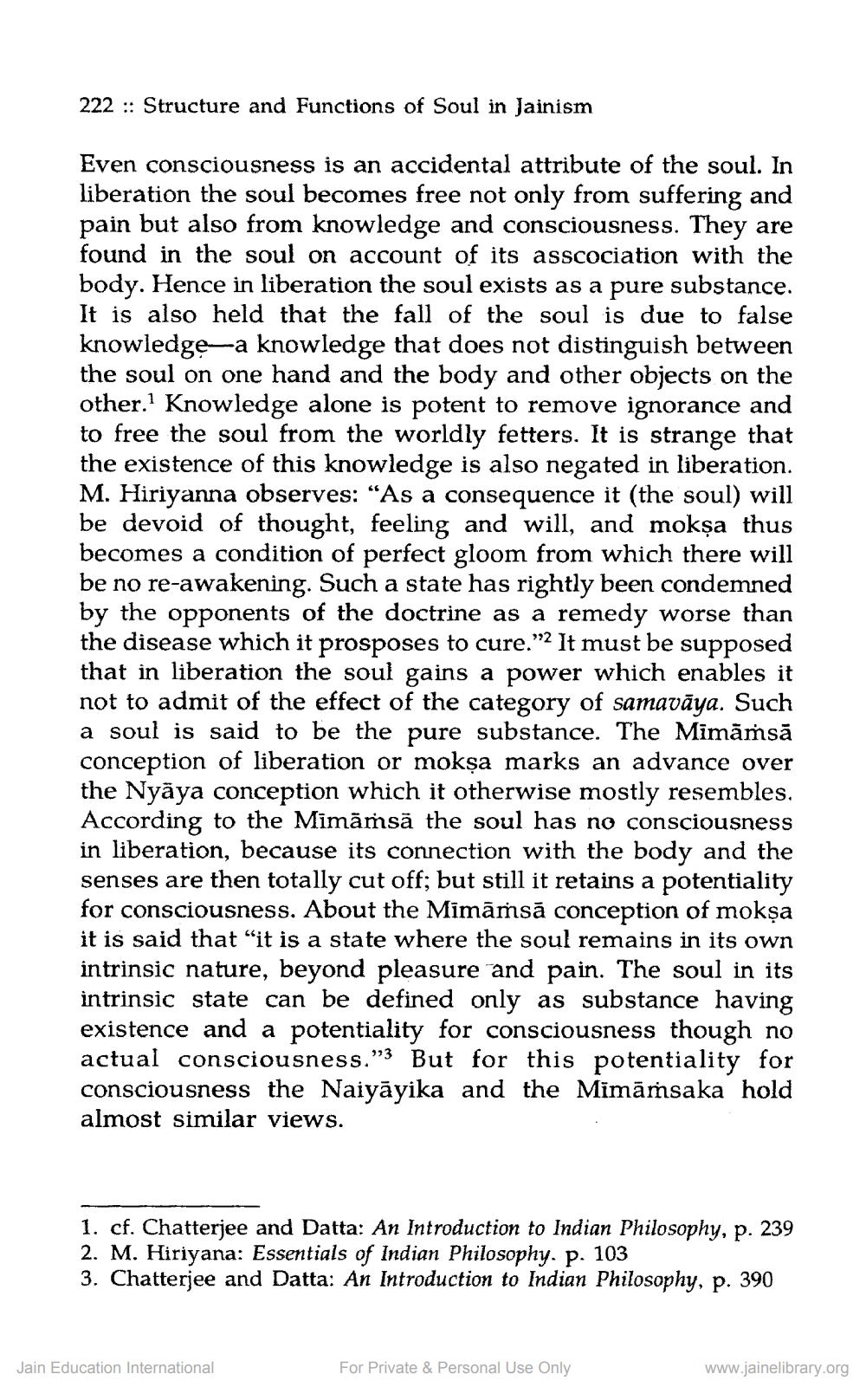________________
222 :: Structure and Functions of Soul in Jainism
Even consciousness is an accidental attribute of the soul. In liberation the soul becomes free not only from suffering and pain but also from knowledge and consciousness. They are found in the soul on account of its asscociation with the body. Hence in liberation the soul exists as a pure substance. It is also held that the fall of the soul is due to false knowledge a knowledge that does not distinguish between the soul on one hand and the body and other objects on the other. Knowledge alone is potent to remove ignorance and to free the soul from the worldly fetters. It is strange that the existence of this knowledge is also negated in liberation. M. Hiriyanna observes: “As a consequence it (the soul) will be devoid of thought, feeling and will, and mokṣa thus becomes a condition of perfect gloom from which there will be no re-awakening. Such a state has rightly been condemned by the opponents of the doctrine as a remedy worse than the disease which it prosposes to cure."? It must be supposed that in liberation the soul gains a power which enables it not to admit of the effect of the category of samavāya. Such a soul is said to be the pure substance. The Mimāṁsā conception of liberation or mokṣa marks an advance over the Nyāya conception which it otherwise mostly resembles. According to the Mimāṁsā the soul has no consciousness in liberation, because its connection with the body and the senses are then totally cut off; but still it retains a potentiality for consciousness. About the Mimāṁsă conception of mokşa it is said that “it is a state where the soul remains in its own intrinsic nature, beyond pleasure and pain. The soul in its intrinsic state can be defined only as substance having existence and a potentiality for consciousness though no actual consciousness." But for this potentiality for consciousness the Naiyāyika and the Mimāṁsaka hold almost similar views.
1. cf. Chatterjee and Datta: An Introduction to Indian Philosophy, p. 239 2. M. Hiriyana: Essentials of Indian Philosophy. p. 103 3. Chatterjee and Datta: An Introduction to Indian Philosophy, p. 390
Jain Education International
For Private & Personal Use Only
www.jainelibrary.org




